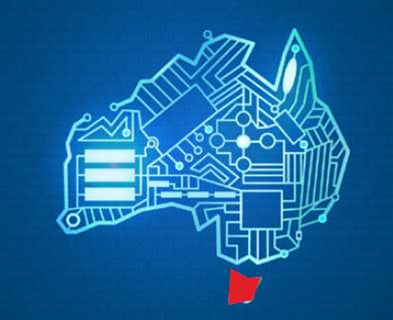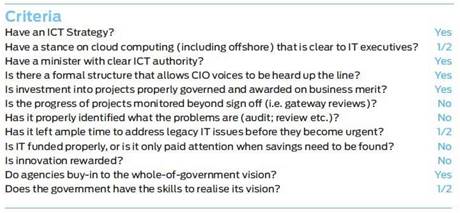Tasmania claims to be home to the first Australian police force fully fitted out with tablet devices, and in that niche it can at least claim to be a leader in government technology deployment.

The reality is that the apple isle runs a very tight IT operation, made easier by the fact that its public service is roughly the size of one large government agency (about 30,000) in the major states. It enjoys a tradition of central IT control that appears to be (begrudgingly, at least) accepted by departments.
The conservative approach seems to have served it fairly well, delivering a score of 6.5 on the iTnews IT maturity index, and placing it fourth on the chart in front of some much larger states:

Most government IT happens behind the scenes, via the IT service agency TMD and in keeping with decisions made by the ICT Policy Board.
The Board meets every couple of months or so to forensically assess agency projects and applications for funding, plus upkeep on the state’s ICT strategy.
However, internal IT matters didn’t get much ministerial airtime under the old Labor Government. New IT and Innovation Minister, Michael Ferguson, has taken up the agenda with a bit more zeal, taking a policy to attract data centre business to the state (and to set up a whole-of-government private cloud) to the March election.
Tasmania’s emphasis on back-office coordination is necessary for a government that has next to no money to spend on IT.
In October this year, TMD was due to have signed the final department onto its new whole-of-government email service, under the $8.9 million IT transformation program it commenced in 2008.
A common VoIP telephony system is also due to reach the final stages of its roll-out this year, which cost $1.62 million in 2012-13.
TMD’s next target is data centres. It has set its sights on a long term transition to a bundled infrastructure-as-a-service arrangement that agencies will be mandated to use, to squeeze whatever cents are left out of its annual technology spend.
It doesn’t appear that there is a great deal left over in the budget pool to fund new capability beyond what is business critical, with the exception of a $28 million grant dedicated to IT initiatives in the 2013 budget, to be dealt out to agencies as the ICT Policy Board sees fit.
Want to see how all the states and territories stack up? Download our State of IT report. Do you work for one of these governments? Let us know how you would have scored your state here.



_(28).jpg&h=140&w=231&c=1&s=0)


_(23).jpg&h=140&w=231&c=1&s=0)





 iTnews Executive Retreat - Security Leaders Edition
iTnews Executive Retreat - Security Leaders Edition
 iTnews Benchmark Awards 2026
iTnews Benchmark Awards 2026
 iTnews Cloud Covered Breakfast Summit
iTnews Cloud Covered Breakfast Summit
 The 2026 iAwards
The 2026 iAwards












_(1).jpg&h=140&w=231&c=1&s=0)



